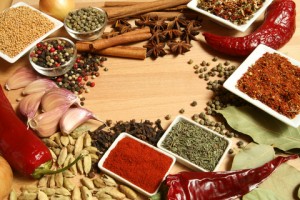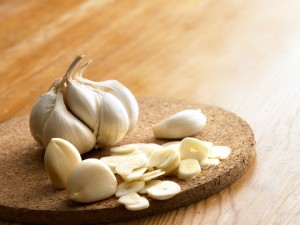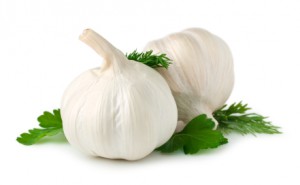Power Khan & Garlic (Allium sativum)
100% natural Herbal Viagra for erectile dysfunction!
Herbal Viagra - Power Khan

Ingredients of Herbal Viagra – Power Khan are known to almost every human being since childhood. But we do not know how powerful these ingredients can be when fermented according to the ancient recipe and most modern technology. No surprise why Herbal Viagra – Power Khan has no side effects and does not cause loss of sensitivity*. Uncompromising results! Let the nature do it’s thing!

Perhaps the world’s best treatment for erectile dysfunction, garlic is one of the most intensively studied herbs in natural medicine today and is one of the ingredients of Power Khan – also called natural Viagra. An impressive collection of results from both clinical and laboratory studies point out the protective value of garlic against the leading diseases of the modern world, including heart disease, cancer, and infectious diseases. While it is still unclear exactly how garlic works, researchers agree that few herbs – or foods – fit so well into an overall strategy for health promotion.
Garlic – an important ingredient of Natural Viagra – Power Khan
Garlic was prized for its antimicrobial effects long before microbes were even discovered. French priests of the Middle Ages used garlic to protect themselves against bubonic plague, now known to be a bacterial infection. During World War I, European soldiers prevented infection by putting garlic directly on their wounds. Nearly every culture has used garlic for general health and longevity, from ancient Chinese to colonial Americans. Today, garlic is one of the best selling preventive medicines in Europe, where it is accepted as safe and effective by both medical authorities and government officials.
Primary uses of Garlic
- Lowering cholesterol levels
- Lowering blood pressure
- Cancer prevention
- Treating infection
- Enhancing immune function
- Antioxidant effects
Health Benefits of Garlic
Some of the most popular traditional uses of garlic have been for colds, flu and other infections, earaches, vaginal yeast infections, and high blood pressure. Modern research has focused on four main areas: heart disease, cancer, infectious disease, and antioxidant effects. The effects of garlic on cardiovascular health have been studied for more than 30 years. Garlic reduces cholesterol levels, raises the level of healthy high-density lipoproteins, and has antiplatelet or “blood thinning” effects – important factors in preventing atherosclerosis (hardening of the arteries), high blood pressure, heart attack and stroke. Garlic also appears to lower blood pressure directly.
The newest area of garlic research involves its cancer-preventive properties. One large study drew a direct correlation between consumption of garlic and other Allium vegetables (such as onions) and a 40% decrease in the rate of stomach cancer. A 1994 study in 41,000 women showed that one or more servings of garlic a week was associated with a 35% decrease in risk of colon cancer - the most significant decrease of all 127 foods studied. In other studies, garlic interfered with the development of a number of different types of tumor cells. Garlic also appears to have immune-stimulant, antioxidant, and liver-protective benefits, although these effects have not yet been as well studied.
Research Findings

Much present research is aimed at identifying the compounds responsible for the health-protective effects of garlic. The most active medicinal components of garlic are the sulfur-containing compounds, and the compound allicin is the major source of its antimicrobial action. (The characteristic strong odor of fresh garlic is also largely due to allicin.) Some garlic experts also consider allicin the key to its cardiovascular benefits as well, but this is more controversial. Current anticancer research is focused on diallyl sulfides, breakdown products of allicin that are present in garlic oils.
- Cardiovascular effects: Lowers serum lipid and cholesterol levels and improves the ratio of high density (beneficial) to low density (harmful) blood lipids; reduces platelet aggregation; lowers blood pressure; slows the oxidation of blood fats (oxidized blood fats increase the risk of heart disease).
- Anticancer effects: Lowers the risk of stomach and colon cancer; may inhibit tumor formation and protect against damage from radiation and chemotherapy.
- Antimicrobial effects: Shows in vitro (in laboratory experiments) and in vivo (in the body) activity against antibiotic-resistant strains of Staphylococcus, Escherichia, Proteus, and Pseudomonas; effective against opportunistic microbes such as Herpes and Candida.
Specific Studies
- Meta-analysis: In placebo-controlled trials involving 365 adults with elevated cholesterol, the equivalent of one-half to one clove of fresh garlic per day lowered cholesterol levels by 12% (Warshafsky, et al., 1993).
- Clinical Study: In a randomized, placebo-controlled study involving 261 patients with elevated cholesterol, garlic lowered serum cholesterol by 12% and mean triglyceride values by 17% after 16 weeks. Daily dose was 800 mg garlic powder tablets standardized to 1.3% alliin (Mader, 1990.)
- Clinical Study: 600 mg per day of garlic powder in tablets for two weeks reduced the susceptibility of blood fats to oxidation by 34% (Phelps & Harris, 1993).
Safety
Garlic has an excellent safety record and is well tolerated by most people. There is no known toxicity, although it can cause stomach irritation in sensitive individuals. (Taking garlic with food may reduce the chance of stomach irritation.) Use concentrated garlic products with caution during pregnancy; however, food consumption of garlic in pregnancy has a long history of safe use. Garlic in breast milk may cause colic in nursing babies.
Dosage
- In clinical studies, garlic tablets were effective at a dose of 600-900 mg per day of high-quality garlic powder.
- The dose of aged garlic used in trials was 4 capsules (a total of 4 ml) per day.
- The dose of garlic oil “pearls” used in a recent study showing cholesterol-lowering effects was 10 mg per day, equivalent to 3-4 grams or 1 moderate size fresh clove.







